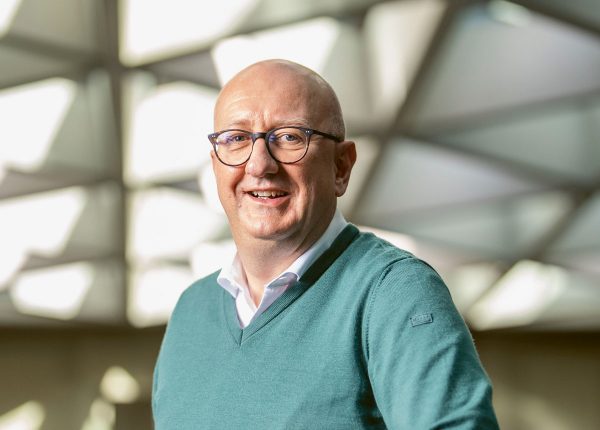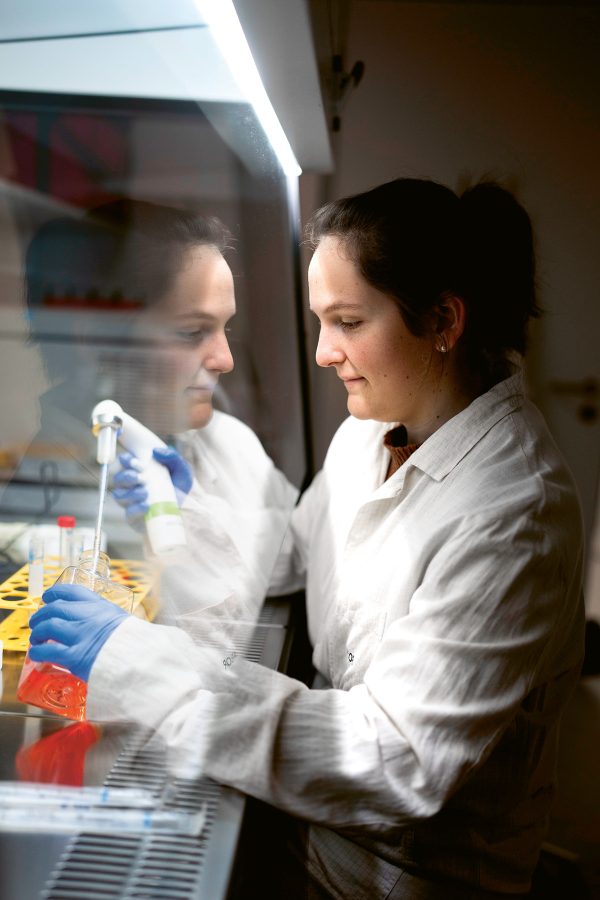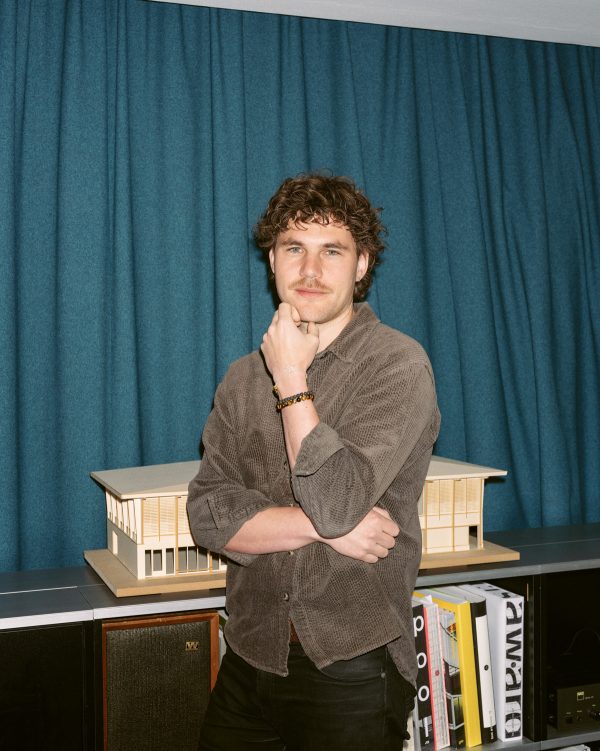Combatting weeds with high-tech
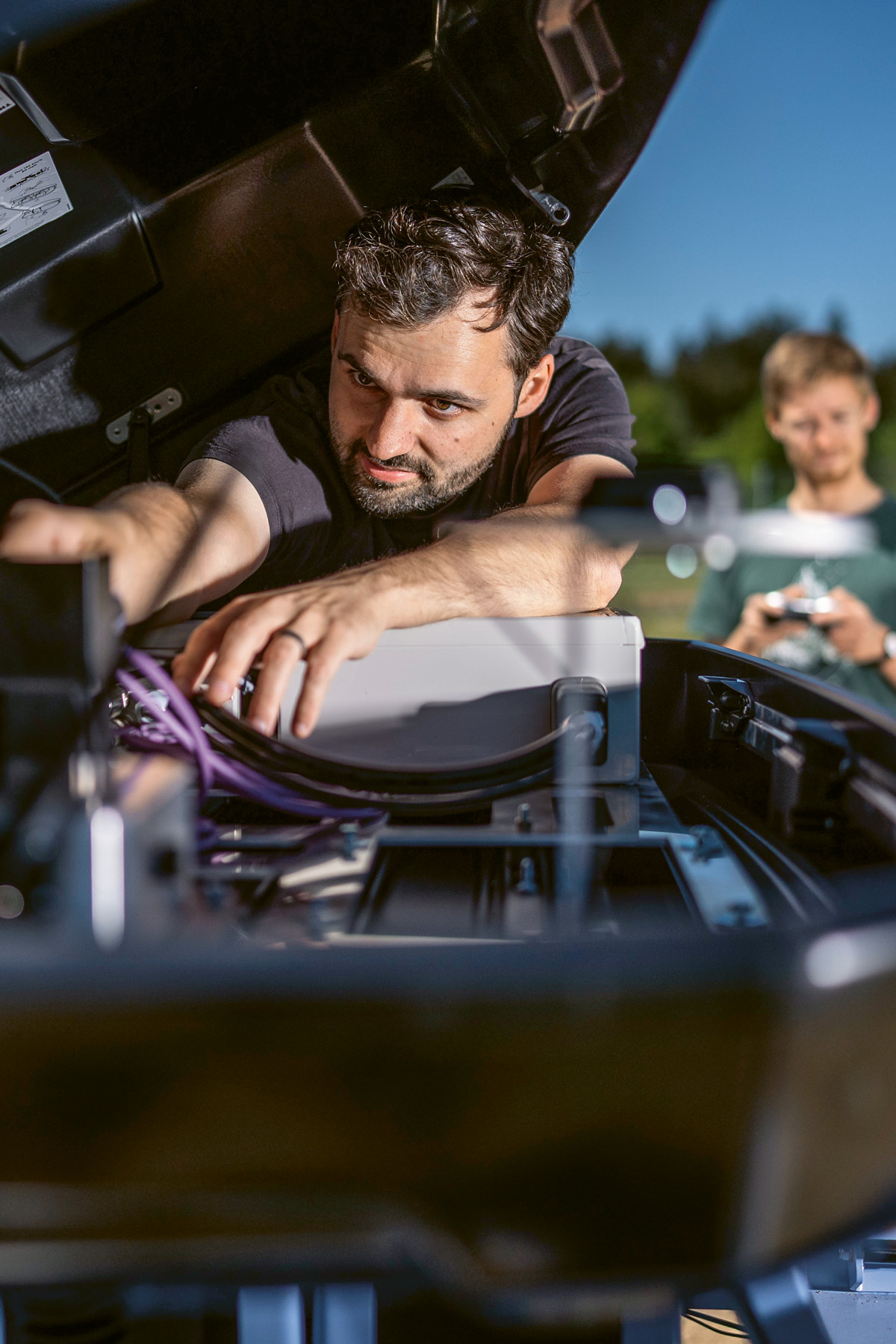
Combatting weeds with high-tech
Robotics is the solution to some of agriculture’s biggest challenges: such is the conviction of Aurel Neff, co-founder of ETH spin-off Caterra. We spoke to the entrepreneur, whose aim for 2026 is to lease out a total of forty robots.
What problem is Caterra solving?
AUREL NEFF – Organic farms that don’t use herbicides are looking for technological alternatives to costly manual weeding. On top of that, farmers are finding it increasingly difficult to hire people willing to do this kind of work. Our solution is a robot that autonomously removes weeds using a laser. Our technology is also attractive for conventional farms. The herbicides they use tend to slow the growth of their vegetables, but if they could save time by not damaging their crops during growth, the benefit would be huge – especially in Switzerland, where the frost-free period is relatively short. And herbicides are under pressure: every year, another is banned. It’s likely that most of them will be phased out eventually.
“The key challenge is: how robust can we make our robot, and how long will that take?”
Will we see robots in fields everywhere in a few years’ time?
Some companies focus on mounting lasers to tractor trailers. Our project is a bit more complex and needs more expertise – we’re not just working on lasers, but also on autonomous navigation, software and safety questions. But if we succeed, a robot is the best and most cost-efficient solution. The key challenge is: how robust can we make our robot, and how long will that take?
What does your location at the ETH facility in Lindau, Zurich Oberland, offer you?
We benefit from having an office with a workshop next to a vegetable field, and good transport links. We also benefit from knowledge exchange, for example with ETH doctoral students in plant sciences. It’s also extremely valuable being so close to the Strickhof agricultural competence centre, where farmers are trained. Whole classes of students come to visit our robot and give us feedback.
How big is the market for Caterra?
In Switzerland, we have about 200 farms of a critical size producing organic vegetables. They’re our most obvious customers – some might even use up to a dozen robots. Then there are fruit and herb growers, as well as conventional farms too. We’ve also had many enquiries from France, Italy, Austria and Germany.
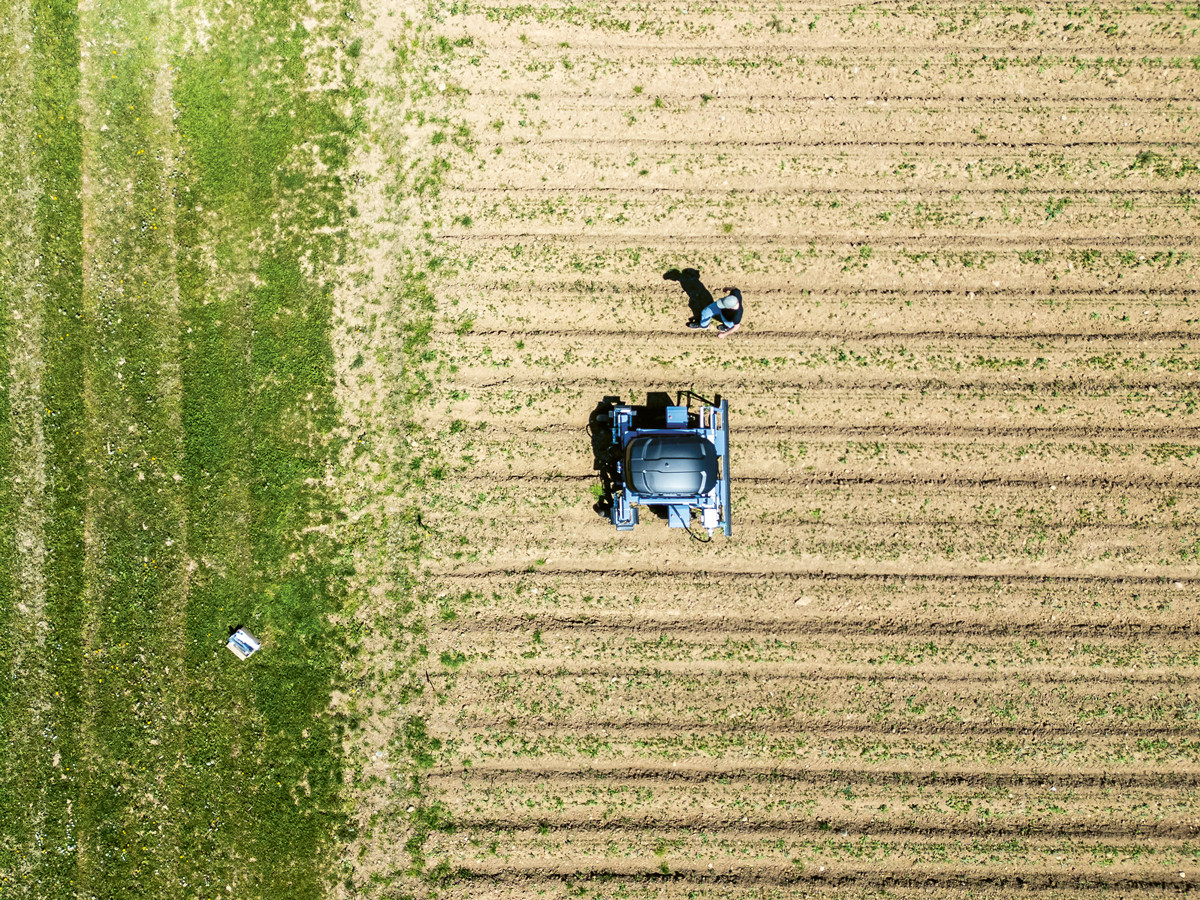
© ETH Foundation / Valeriano Di Domenico
Where are your robots already in use, and under what terms?
We’ve currently leased out ten robots, which are weeding vegetable fields across Switzerland. Farms can test the robot for a year at a cost of around 60,000 francs, including support. The robot works day and night, in all weather, except when it’s extremely muddy. And it helps solve the labour shortage I mentioned, with many farmers struggling to find enough people to do the weeding.
What has support from donors meant for your journey?
Thanks to the Pioneer Fellowship, my co-founder Patrick and I were able to focus on the project for a full year – developing ideas, building prototypes, conducting market research. The coaching that came with the programme was also incredibly helpful. We’re slowly starting to generate revenue now, but robotics takes time. We’re still doing research, and the team is working extremely hard. Customer acquisition is no problem – we’ve got a long waiting list. What we need is to keep developing, developing, developing.
What have been the highlights in the tough everyday life of a young startup?
One high point was definitely the first time the new robot worked through the night without any intervention. But the absolute best moment so far was signing the final robot lease agreement for 2025. The fact that customers gave us their money for something they hadn’t even seen yet – that was an incredible vote of confidence.
